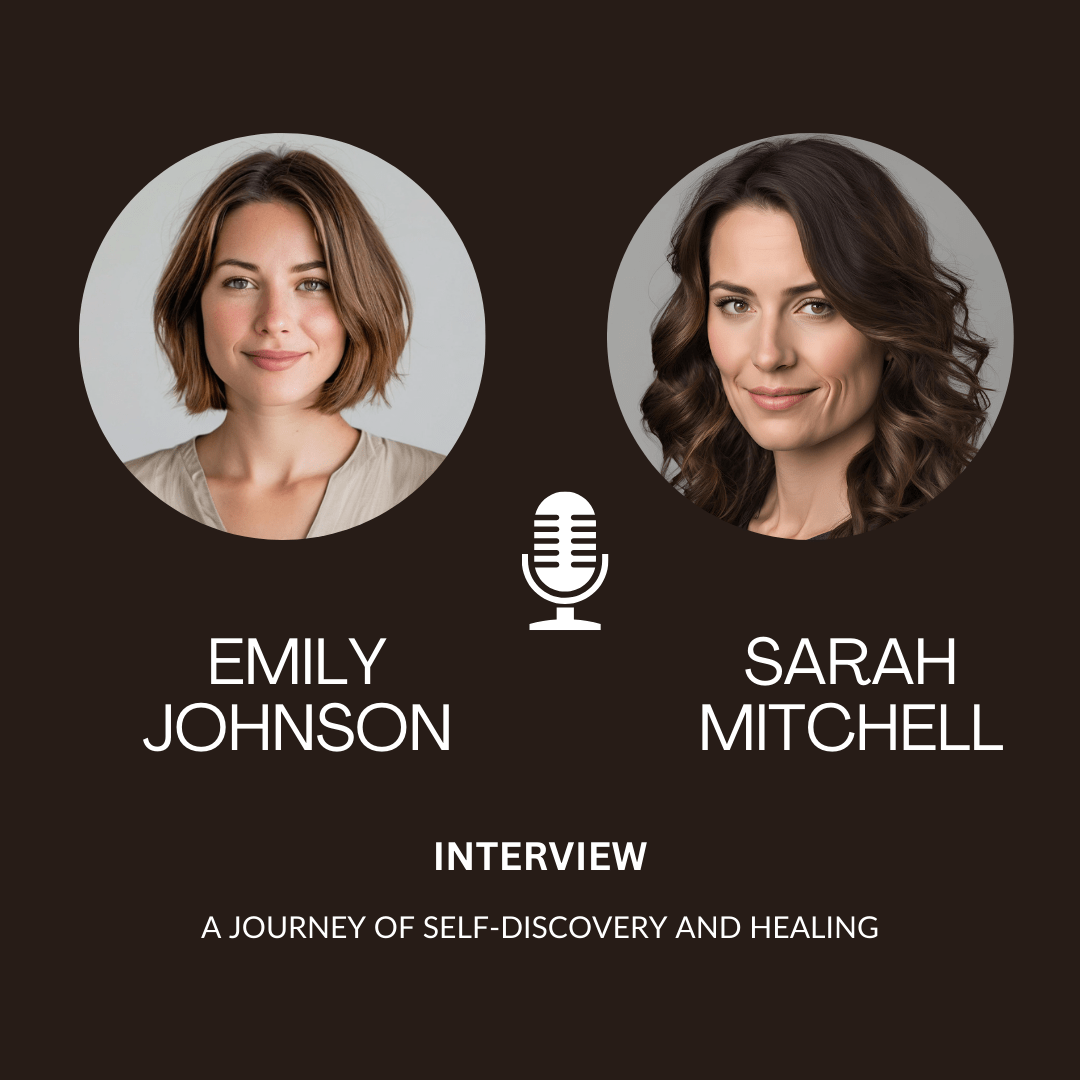Interview: Sarah’s Struggle with Severe Depression
In an inspiring interview, our correspondent Emily Johnson sits down with Sarah, a woman who bravely battled severe depression. Sarah shares her deeply personal journey, detailing how self-reflection helped in her struggle with severe depression.
By digging into her past, she uncovered several underlying reasons for her depression and worked through them to find a path to healing.
This conversation offers hope and insight to anyone facing similar struggles.
Let’s start the interview…..
Can you start by telling us a little about when you first started experiencing symptoms of depression?
Sarah
Thank you, Emily. My journey with depression began about five years ago. It started with a persistent feeling of sadness and hopelessness that I just couldn’t shake. At first, I thought it was just a rough patch, but as time went on, it became clear that something more serious was going on.
What were some of the most challenging aspects of dealing with severe depression?
Sarah
One of the hardest things was the overwhelming sense of isolation. Even when I was surrounded by loved ones, I felt completely alone. The fatigue was also debilitating, I had no energy or motivation to do anything, which made everyday tasks feel impossible.
How did depression affect your daily life and relationships?
Sarah
It affected every aspect of my life. I struggled to get out of bed, let alone go to work or engage with friends and family. My relationships suffered because I withdrew from everyone. I didn’t want to burden them with my problems, so I kept everything to myself, which only made the isolation worse.
At what point did you realize that you needed to seek help?
Sarah
The turning point came when I could no longer see a way forward. I was in such a dark place that I knew I couldn’t continue like that. That’s when I reached out for professional help and started therapy.
How did self-reflection become part of your recovery process?
Sarah
My therapist introduced me to the concept of self-reflection early on. She encouraged me to look inward and explore the root causes of my depression. At first, it was incredibly painful, but over time, I began to see patterns and connections that I hadn’t noticed before.
What were some of the key insights you gained from reflecting on your past?
Sarah
I realized that a lot of my depression stemmed from unresolved trauma and negative beliefs that I had carried with me for years. For example, I had internalized a lot of guilt and shame from past experiences, which fed into my feelings of worthlessness. Recognizing these issues was the first step in addressing them.
How did you go about working through these issues?
Sarah
It was a gradual process. I started by journaling, which helped me organize my thoughts and feelings. I also used mindfulness techniques to stay present and avoid getting lost in negative thought spirals. Over time, I learned to challenge and reframe the negative beliefs that were holding me back.
What role did therapy play in your journey to recovery?
Sarah
Therapy was essential. My therapist provided a safe space for me to explore my emotions and guided me through the process of self-reflection. She also taught me coping strategies and helped me develop a more compassionate view of myself, which was crucial for my healing.
Did you find any other resources or practices helpful in your recovery?
Sarah
Yes, in addition to therapy and self-reflection, I found support groups to be incredibly helpful. Connecting with others who were going through similar struggles made me feel less alone. I also started practicing yoga and meditation, which helped me manage stress and stay grounded.
How did your relationships change as you worked through your depression?
Sarah
As I began to heal, I became more open and honest with the people in my life. I realized that isolating myself had only made things worse, so I made an effort to reconnect with loved ones. It wasn’t easy at first, but rebuilding those relationships became a source of strength for me.
What advice would you give to someone who is currently struggling with depression?
Sarah
My biggest piece of advice is to reach out for help and not try to go through it alone. Depression can make you feel like there’s no way out, but there is. Therapy, self-reflection, and connecting with others can make a huge difference. It’s also important to be patient with yourself, healing takes time.
How do you maintain your mental health now that you’re in a better place?
Sarah
I continue to practice self-reflection regularly to stay in tune with my emotions. I also make self-care a priority, whether it’s through exercise, spending time with loved ones, or simply taking time to relax. And I’m not afraid to seek help if I start to struggle again—I know now that it’s okay to ask for support.
Sarah, your story is incredibly inspiring. Thank you so much for sharing it with us today. I’m sure it will resonate with many people.







